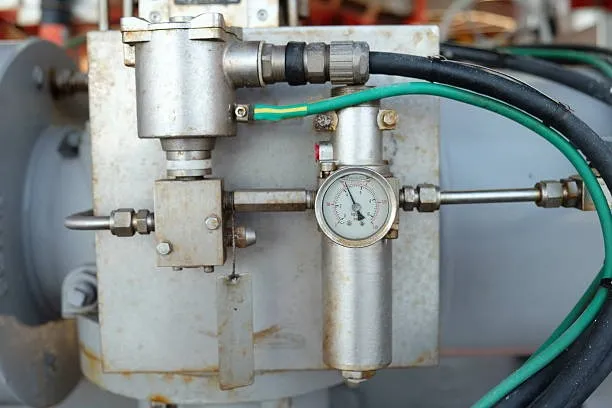
Boiler Tune-Up in Elizabethtown, PA
Keeping your boiler running safely and efficiently is essential in Elizabethtown, where cold Lancaster County winters put heavy demand on home heating systems. A professional boiler tune-up detects small problems before they become costly failures, improves comfort, and reduces fuel bills.
Why a boiler tune-up matters in Elizabethtown, PA
Elizabethtown homes can include a mix of modern and older construction. Older radiators, legacy piping, and varying fuel types (natural gas, propane, or oil) make regular inspection important. Winters here are cold and can be prolonged, so your boiler works hard for months. Sediment buildup, corroded fittings, pilot and ignition problems, and draft or chimney issues are common local concerns that reduce efficiency and increase the risk of breakdowns. A tune-up performed before the heating season restores safe operation and gives you predictable performance when you need it most.
What a boiler tune-up includes
A full tune-up is more than a quick check. The goal is to ensure combustion is efficient and safe, moving beyond visual inspection to testing, cleaning, and small repairs or adjustments as needed. Typical boiler tune-up services include:
- Inspection of combustion and safety systems
- Visual and functional checks of ignition systems, flame sensors, and pilot assemblies
- Testing of safety controls, pressure and temperature limits, low-water cutoffs, and relief valves
- Flue and venting inspection for proper draft and blockage
- Cleaning and preventive maintenance
- Removal of soot, scale, and debris from heat exchangers and burners
- Flushing or descaling where mineral buildup is present (important for hard water areas)
- Cleaning condensate traps and drains on high-efficiency units
- Efficiency and combustion testing
- Combustion analysis or flue gas testing to verify correct air-to-fuel ratio
- Measuring operating pressure and temperature to confirm optimal settings
- Checking for gas leaks or oil supply issues
- Minor mechanical adjustments and part checks
- Lubrication of circulator pumps and moving parts where applicable
- Verification and adjustment of burner settings and fuel pressure
- Inspection of piping connections, expansion tanks, and radiator valves
- Checking and replacing basic filters, seals, or gaskets if needed
- Thermostat and system controls
- Calibration of thermostat and control settings for accurate room temperatures
- Evaluating zone valves, pumps, and programmable controls for proper operation
Diagnostic process: what to expect during a tune-up
- Pre-inspection: Technician reviews system history, past maintenance, and any current issues you’ve noticed (uneven heat, noisy operation, frequent cycling).
- Safety checks: Immediate priority on CO detection, pressure relief, and leak tests. If carbon monoxide or a dangerous condition is found, service is stopped until repairs are made to ensure safety.
- Combustion and efficiency testing: Using diagnostic tools to measure flue gases and adjust the burner to secure efficient combustion.
- Cleaning and adjustments: Remove deposits, adjust burners, tighten electrical and fuel connections, and lubricate components.
- Functional test: Run the system through a heating cycle, confirm even distribution, and re-check safety controls.
- Final report and recommendations: Clear summary of work performed, parts inspected or replaced, and suggestions for upcoming seasonal needs (ex: boiler system flushing, radiator bleeding, or replacement parts).
Checklist — Tasks performed during a typical boiler tune-up
- Inspect combustion chamber and burner assembly
- Perform flue gas or combustion efficiency test
- Check and test all safety devices (pressure/temperature relief, low-water cutoff)
- Inspect and clean heat exchanger and flue pathways
- Clean burners, ignition components, and flame sensors
- Check fuel lines, valves, and pilot/ignition operation
- Test circulating pumps and motor operation; lubricate where applicable
- Inspect expansion tank and system pressure
- Verify thermostat accuracy and control settings
- Inspect piping, radiators, valves, and zone controls
- Check for signs of corrosion, leaks, and scale; recommend descaling if needed
- Replace basic filters, seals, or gaskets as required
- Record combustion readings and operational parameters
Immediate benefits you’ll notice
- Improved heating consistency: Balanced combustion and calibrated controls reduce cold spots and short cycling.
- Enhanced safety: Properly adjusted burners, tested safety devices, and flue inspections reduce the risk of carbon monoxide and other hazards.
- Quieter operation: Lubrication and secured components typically eliminate squeaks, clanks, and pump noises.
- Reduced energy use: Cleaner burners and optimized combustion lower fuel consumption so your boiler runs more efficiently.
- Fewer emergency repairs: Tune-ups catch minor issues—corroded valves, worn seals, loose wiring—before they fail during peak demand.
Long-term advantages: lower costs and longer equipment life
Regular annual tune-ups extend the life of your boiler by preventing corrosion, reducing stress on mechanical parts, and ensuring efficient heat transfer. That lowers the likelihood of major breakdowns and expensive mid-winter replacements. For Elizabethtown homeowners, this means more predictable heating costs across seasonal extremes and less risk of unexpected cold spells caused by system failure.
How often should Elizabethtown homes schedule a tune-up?
For most boilers, one comprehensive tune-up per year—performed before cold weather arrives—is recommended. High-use systems, older boilers, or homes with hard water and visible scaling may benefit from biannual checks. Scheduling maintenance in early autumn ensures your system is ready for the first freeze and gives time to order parts or schedule repairs before peak season.
Common issues found during Elizabethtown tune-ups
- Soot and scale buildup reducing heat transfer
- Faulty or dirty ignition and flame sensing components
- Leaking valves or plumbing connections caused by age or corrosion
- Improper burner adjustment leading to wasted fuel and elevated CO levels
- Circulator pump wear or air trapped in radiators causing uneven heat


Enjoy flexible financing options that make upgrading or repairing your HVAC system easy and budget-friendly.










